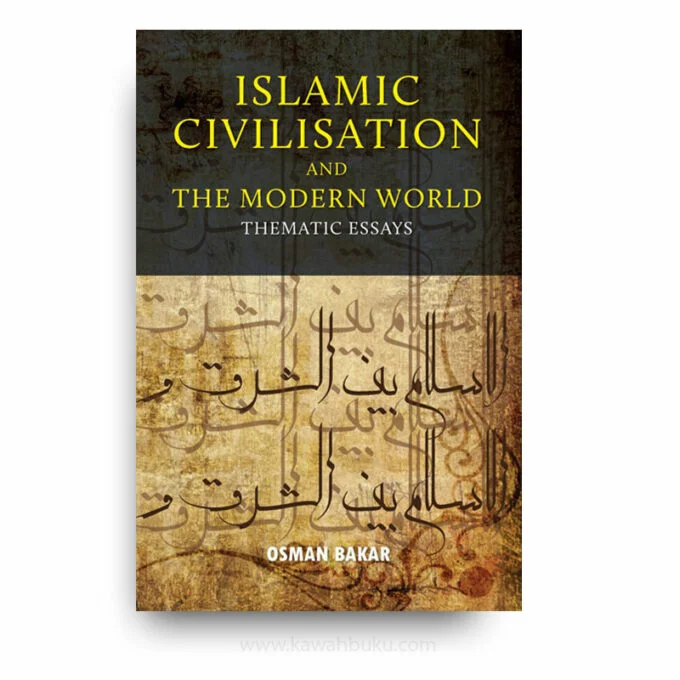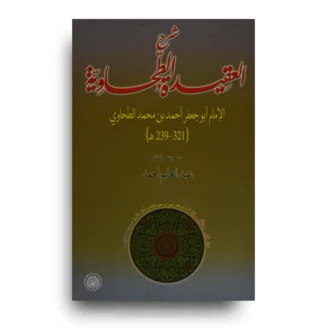Islamic Civilisation and the Modern World: Thematic Essays is another masterpiece of the renowned author who has made a thematic presentation of Islamic civilization. This book consists of fourteen chapters which each chapter deals at least with a major theme of Islamic civilization. This book explores many interesting ideas such as the three types of a civilization’s global presence, the Qur’anic theory of the identity of the Muslim ummah and the identity of Islamic civilization, tawhidic epistemology, the core content of knowledge culture, the wisdom of medical pluralism, the theory of Islam and the three waves of globalization, the marriage between ethnicity and religiosity to produce a certain type of civilizations, and civilizational renewal in relation to Maqasid al-shari’ah.
In the first chapter, Islamic civilization and its global presence has been discussed as the most important theme with a special focus on the domain of knowledge culture. The various types of a civilization’s global presence have been explained. The theme of the identity of the Muslim ummah and, by extension, the identity of Islamic civilization itself is the primary concern in the second chapter while the central theme of the third chapter is the destined role of Islam and its civilization as the bridge between the East and West. In the fourth chapter, the classification of knowledge and of the sciences have been discussed as the central theme with reference to two of the most eminent Muslim thinkers in history, namely Qutb al-Din al-Shirazi (1236-1311 C.E.) and Ibn Khaldun (1332-1406 C.E.). The spiritual and ethical foundations of science and technology in Islamic civilization have been presented as the theme of the fifth chapter. The author considers this theme as a subtheme of knowledge culture or may be referred to as Islam’s scientific and technological culture.
Islam’s medical and public health systems were so comprehensive that they left a tremendous impact on the modern West. The history of that systems has been revisited in chapter six, while chapter seven discusses the role of cosmology in the cultivation of the arts which is inseparable from knowledge culture as understood and practiced in Islam. Chapter eight deals with environmental health care and welfare which is an extremely important aspect of Islamic civilization. The theme of Islamic science and technology has been duly placed in chapters nine and ten which is related to the central theme of chapter five. These three chapters show the importance of the pursuit of science and technology in the age of classical Islamic civilization.
However, these three chapters differ in emphasis. Islam and globalization in world history is the main theme of discussion in chapter eleven. A theory called “Islam and three waves of globalization” has been developed which claims the first waves “the Muslim dominated globalization” with a time-span of about 600 years (1000-1600 C.E.); the second wave as “Western-dominated globalization” with a time-span of about 450 years (1600 -1950 C.E.); and the third wave as “contemporary or American dominated globalization”. The focus of discussion has shifted from the international arena to a particular region, Southeast Asia, in the twelfth chapter. As a major issue, the identity of Malay Islamic civilization has been addressed specifically. This chapter discusses the application of the theory of ummatic and civilizational identity formulated in chapter two to Malay ethnicity that resulted in the formation of Malay-Islamic identity.
In the thirteenth chapter, the author portrays the identity crisis of contemporary Muslim ummah and its civilization and identifies the eclipse of tawhidic epistemology as the root cause of this identity crisis. In the last chapter, he discusses the place and role of Maqasid al-shari’ah in the civilizational renewal of the Muslim ummah of the twenty-first century and how the restoration of tawhidic epistemology discussed in chapter thirteen can be presented as the key element in the envisaged civilizational renewal (al-tajdid al-hadari). In the concluding chapter, the author argues that the task of civilizational renewal is vast in scope and formidable to be undertaken in practice and it requires the cooperation of many individuals, groups, and institutions.











Reviews
There are no reviews yet